Friday, 26 November 2021
Study on the intrinsic, dynamic activity of the brain confirms a very general principle of its organization
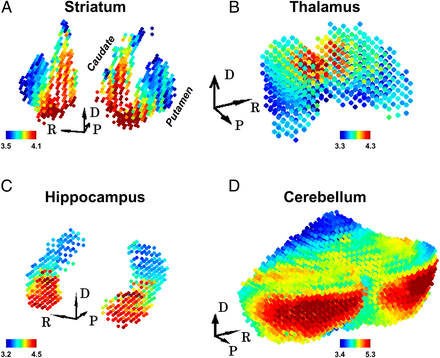 Scientists have known for some time that for our brains to perform any given task, a very short-term sensory memory function must co-operate with some of our longer-term memory functions. Scientists have also known that such encoding on various time scales is correlated with the frequencies at which the neurons oscillate in the associated parts of our brain, ranging from high frequencies in the sensory cortical areas to very low frequencies in the multi modal associative areas. But in an article entitled Hierarchical dynamics as a macroscopic organizing principle of the human brain, published in the journal PNAS in August 2020, authors Ryan Raut, Abraham Snyder and Marcus Raichle showed that this important principle can be generalized not only to the entire cortex, but also to several sub-structures within it. Throughout all of them, the temporal profile of the spontaneous oscillations in the brain seems to be structured along gradients starting in the high-frequency sensory areas and proceeding to multi modal, higher-function areas where the oscillation frequencies are far lower. (more…)
Scientists have known for some time that for our brains to perform any given task, a very short-term sensory memory function must co-operate with some of our longer-term memory functions. Scientists have also known that such encoding on various time scales is correlated with the frequencies at which the neurons oscillate in the associated parts of our brain, ranging from high frequencies in the sensory cortical areas to very low frequencies in the multi modal associative areas. But in an article entitled Hierarchical dynamics as a macroscopic organizing principle of the human brain, published in the journal PNAS in August 2020, authors Ryan Raut, Abraham Snyder and Marcus Raichle showed that this important principle can be generalized not only to the entire cortex, but also to several sub-structures within it. Throughout all of them, the temporal profile of the spontaneous oscillations in the brain seems to be structured along gradients starting in the high-frequency sensory areas and proceeding to multi modal, higher-function areas where the oscillation frequencies are far lower. (more…)
From the Simple to the Complex | Comments Closed
Monday, 8 November 2021
An example of the importance of our brain rhythms
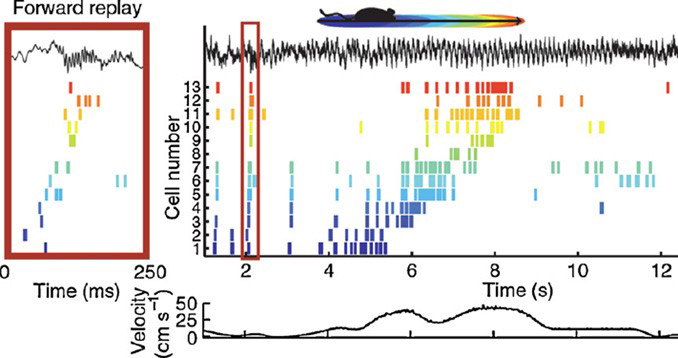
A large majority of the neurons in the human brain display rhythmic activity patterns—in other words, they send out one nerve impulse, then go quiet, then send out another nerve impulse, and so on. These patterns, which have different frequencies, are one of the neurons’ preferred means of communicating with one another. But unfortunately, college and university neuroscience textbooks discuss the brain’s neural rhythms only very superficially, even though they are actually starting to shed light on many different scientific mysteries. One good example is the consolidation of learning, which is associated with certain types of neural activity in the hippocampus. That’s just about all that a lot of textbooks have to say on the subject—nothing about what specific mechanism might be involved. Or you might read that your recently acquired memories are consolidated while you’re asleep or reconsolidated when you retrieve them, and that the hippocampus is somehow involved, but that’s it. (more…)
Memory and the Brain | Comments Closed
Monday, 18 October 2021
All of our animations are back again !
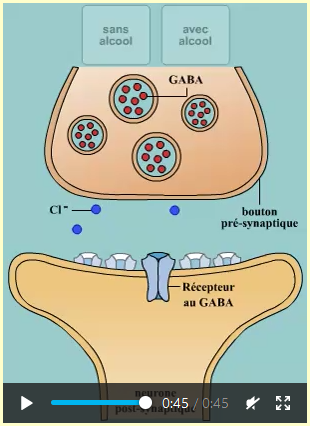
From the very start, The Brain from Top to Bottom was designed to be an interactive website where the general public could learn about the biological bases of human behaviour. Much of this interactivity was provided by its various navigation tools, which let you explore the five different levels of organization of the human brain and human behaviour, choosing the level of explanation that suits you best (beginner, intermediate, or advanced).
But almost immediately, our team realized that because biology and neuroscience involve so many phenomena that are dynamic—that take place over time—we were going to need more than just static images to explain them properly. We therefore used Adobe Flash software to produce about 100 animations illustrating many of these phenomena, ranging from the generation of action potentials to the effects of drugs at the synaptic level, and from the bases of neuronal plasticity to the bases of muscle contraction. But almost 20 years after it was first released, the Flash platform had become obsolete. As of January 12, 2021, Adobe had stopped supporting its Flash Player and blocked Flash animations from running in any web browsers, making all of the animations on our website inaccessible. (more…)
From the Simple to the Complex | Comments Closed
Tuesday, 28 September 2021
Two pioneers in research on neurogenesis and vision
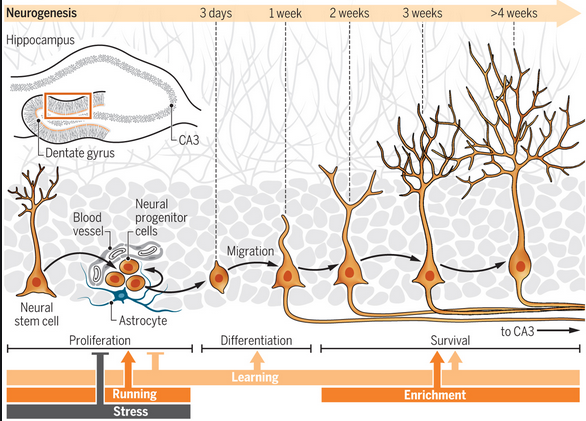 Today I just want to draw your attention to two researchers who are senior citizens but still active and still inspiring: Fred Gage and Deric Bownds.
Today I just want to draw your attention to two researchers who are senior citizens but still active and still inspiring: Fred Gage and Deric Bownds.
Fred Gage recently gave an interview on his scientific career, in which he told how he became a pioneer in research on neurogenesis—the development of new neurons in the brains of adult mammals. It’s always interesting to learn about the scientific career of someone who disproved an idea that was previously dogma. In Gage’s case, it was the idea that had emerged during the last decades of the 20th century that when humans are born, their brains contain as many neurons as they will ever have and will only continue to lose them as their lives go on. (more…)
From the Simple to the Complex | Comments Closed
Tuesday, 14 September 2021
The great complexity of the brain’s mental mapping system
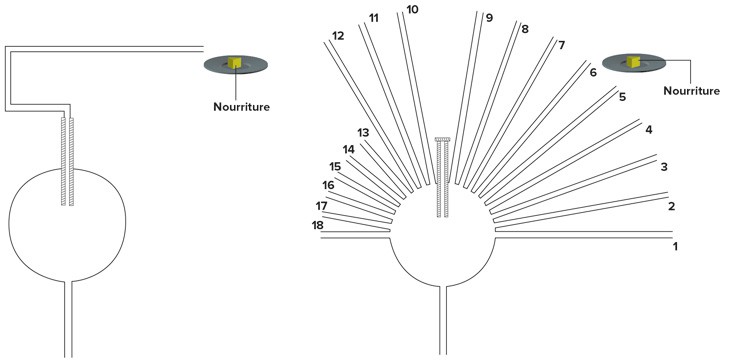
In the 1930s and 1940s, rats’ ability to learn their way through a maze was explained, according to the behaviourist paradigm prevailing at that time, as simply a process of building connections between sensory stimuli and behavioural responses. When a rat found its way through a maze successfully, it reached the final chamber where it received a reward of food, According to behaviourist theory, this reward strengthened the neural connections underlying the associations that the rat had had to make to complete its task successfully. But this reasoning could not explain the surprising observations made in an experiment by U.S. psychologist Edward Tolman in 1948, in which some rats reached their rewards by finding shortcuts through the maze along paths that they had never taken before! (more…)
Memory and the Brain | Comments Closed







